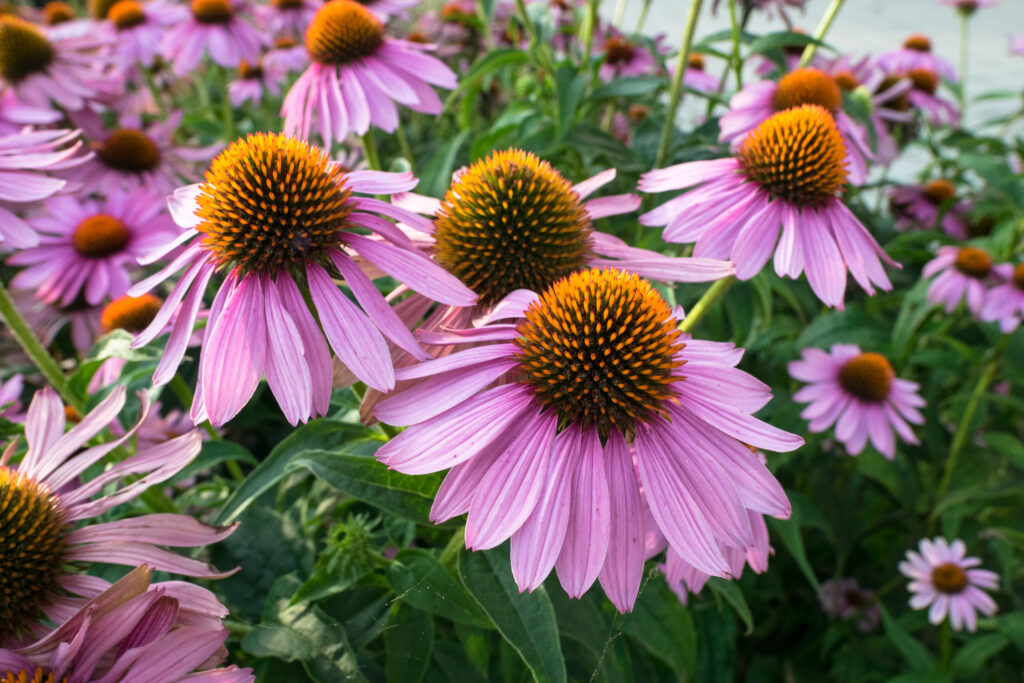Echinacea is a proven herb that helps boost the immune system. In cancer, it also seems to help during radiotherapy and chemotherapy and may even help with brain cancers, or brain tumors.
Although Echinacea was a favorite of Native American Indians for centuries, it lost its position as an immune system booster when antibiotics came along. Originally claims were made for its excellence in aiding relief from anything from colds to cancer.
Over the last twenty years, it has been the Germans who have pioneered all the new research work with literally hundreds of studies. This is a very well-researched herb!
The German Federal Health Agency has approved echinacea as a supportive treatment for colds and influenza, hard-to-heal skin wounds, and urinary tract infections. Almost all the research uses liquid preparations or tinctures. Other research studies have noted an effect in eczema, candidiasis, rheumatoid arthritis, and psoriasis.

However in 1999 M J Verhoef successfully used echinacea in neurological disease and in brain tumors, and this led scientists to refocus their attention to cancer.
Echinacea is a member of the Compositae family. Although there are nine members, only three have been widely studied and used. Most common, the purple cornflower is a native plant to America and was first officially used therein medical practice in 1887.
MEDICINAL PROPERTIES
Both the roots and the leaves have medicinal properties.
An excellent Immune System booster
It boosts the immune system directly due to a number of active chemicals like polysaccharides, alkylamides, flavonoids, caffeic acid derivatives, polyacetylenes, and essential oils. For example, arabinogalactan is a very powerful immuno-modulating polysaccharide and is effective in activating macrophages, interleukin and interferon with an increase in T-cell activity. It can boost the immune system to attack and kill microbes, cause cancer cell death and more and more studies are showing positive effects with brain tumors. It can also be used to reduce secondary infection during and after radio and chemotherapy. So it may be helpful in certain areas of your total cancer-fighting program.
DOSAGE
Recommended dosage appears to vary from 900 mg to 1200 mg per day divided into three doses. Echinacea should not be used for more than eight weeks at a time as it thins the blood. It is also available in capsules and teas.
FIRST-HAND EXPERIENCE
I witnessed personally that Cat´s claw, astragalus, turmeric (curcumin), and echinacea can be an excellent combination for immune-boosting in cancer patients, and especially after treatment with radiotherapy or chemotherapy. We gave this combination to Catherine when the chemotherapy drugs had reduced her white cells to desperately low levels, and the standard immune-stimulating drugs and injections on offer simply did not work even though she tried them daily for weeks. On taking the four herbs her white cell levels recovered in less than two weeks! She was also taking also aloe vera which may have helped further (University of Maryland Medical Center).






